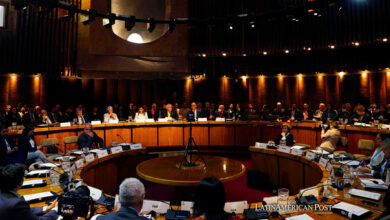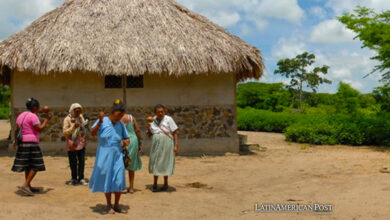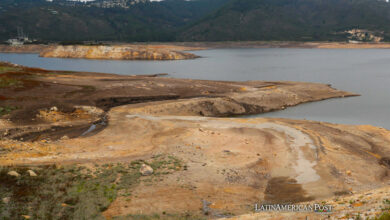Dengue, the ‘coronavirus’ of Latin America
While dozens of countries seek to prevent the spread of Coronavirus, Latin America has spent months with a dengue epidemic that has infected more than 3 million.

Dengue mosquito transmitter. / Photo: Pxhere
LatinAmerican Post | Juliana Suárez
Escucha este artículo
Leer en español: Dengue, el ‘coronavirus’ de América Latina
The Pan American Health Organization (PAHO) announced the state of alert for Latin America and the Caribbean for the dengue outbreak that has been spreading since mid-2019. Brazil, Colombia, Honduras, and Nicaragua are some of the countries where more cases of deaths have been reported, but this is found in almost every country in the region.
At the time, Dr. Miguel Aragón, a consultant for communicable diseases of PAHO, told EFE that the alert “is a tool used in the organization to notify the member states in the region of the Americas of any disease that means a threat to public health". And this outbreak, with the balance of three million cases, became 20% higher than the last one in 2015.
This is a disease that is transmitted by the bite of a mosquito and its symptoms are assimilated to a cold because you can experience fever, body aches, muscles and joints. The biggest deception of this disease is that at first the symptoms are mild, which means that the person suffering from it does not pay attention to the discomfort. But this can increase dramatically in a matter of days until the symptoms are unbearable.
Therefore, PAHO has called to prioritize the lives, as reported, of the more than 3 million affected, at least 28,000 were seriously and caused more than 1,500 deaths. With these figures, the current epidemic not only devastated the numbers of the 2015, but also became the one with the highest risk of death in history, PAHO said.
Read also IACHR sets standards on "Business and Human Rights"
In that sense, Latin America and the Caribbean cannot be trusted that the Coronavirus has not arrived in the region, as they are facing an epidemic as serious as the one currently expanding in Asia. In addition, according to PAHO, the risk of dengue outbreak is that it is difficult to control because it is high and tropical temperatures that are favoring its spread.
According to research published by the journal 'Nature Microbiology' in June 2019, high temperatures are an optimal environment that increases the chances that the transmitting mosquito will survive longer. Thus, the transmission seasons are longer and can reach a greater number of people. That is why the most affected countries have been the tropical ones of South America like Brazil and Colombia, and in Central America the majority, such as Guatemala, Belize, Honduras, Nicaragua, whose environments favor the mosquito.
In the last wave of propagation, Paraguay, in the southern cone, was one of the most affected. During this, even President Mario Abdo Benitez was infected, although he already announced that he is stable.
Not only has dengue been dormant for more than six months, but the countries' organizations and health authorities speak of an exponential increase, so it is expected that cases will continue to increase in the coming months. Therefore, PAHO has called for people to try to create hostile environments for mosquitoes because, since climatic conditions are favoring their spread, humans must take the greatest amount of preventive measures to counteract it.
Faced with this, he said that "the most effective way to combat it is to eliminate its breeding sites to prevent the mosquito from reproducing because without mosquitoes there would be no transmission of dengue." Some of the recommendations given are to avoid moisture, hydroponic plants ( that is to say, they grow in water), and other types of places where the same water is concentrated.For that, PAHO asked to eliminate glasses, old tires, bottles, etc., where water is concentrated for long periods, since the mosquito plays there.
Do you know that #mosquitoes lay their eggs in flower pots?
They only need a little water to reproduce. #FightAedes pic.twitter.com/b4JwuCMhra— PAHO/WHO (@pahowho) February 7, 2020
The organization also expressed concern about the spread because dengue is strictly linked to sanitary conditions and, therefore, to poverty. According to Miguel Aragón, the precarious conditions of cleaning and treatment of garbage are what make the environment fertile for the mosquito.





